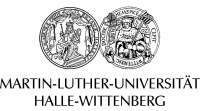Verbundpartner
Since its foundation in 1998, the Trier Center for Digital Humanities (TCDH) has developed into a nationally and internationally established center for digital humanities. Its goal is to address issues in the humanities and cultural studies through the (further) development and application of innovative computer science methods and procedures, to develop new research approaches in these disciplines, and at the same time to contribute to the formation of new research fields and methodologies in computer science-related subjects. The TCDH is divided into several research areas: Digital Edition and Lexicography, Software Systems and Research Infrastructure, and Digital Literary and Cultural Studies.
With the project "Networked Correspondences", an important focus was placed on the development of informatic procedures and visualization methods that support the literary analysis of large text corpora.
Project website at the TCDH
The German Literature Archive Marbach (DLA) is one of the most important institutions for literature around the world. With about 1.400 original literary estates by famous authors and academics, the Marbach collection is internationally considered one of the most important of its kind. The collection gives testimony of the development, distribution, influence, interpretation, and study of literature and intellectual history as well as the life and thought of their authors – and it does so via manuscripts and prints, images and objects, and in audiovisual as well as digital form. Whilst the range of the general collection reaches from works of the 18th century to contemporary contributions, since its founding in 1955 the DLA is committed to the collection of German exile literature and owns the internationally most significant collection of sources for exile studies. Amongst the authors whose (partial) literary estate can be found in the DLA are Alfred Döblin, Mascha Kaléko, Else Lasker-Schüler, Heinrich and Thomas Mann, Kurt Tucholsky, and Carl Zuckmayer.
DLA website of the project on the scholarly investigation of exile letters (1933-1945) in connection with further material (German)
The Institute of Computer Sciences at MLU Halle-Wittenberg has been working at the transition between Computational Sciences and Humanities for several years and had a significant involvement in the development of the working group “E2 – Electronic Editing”. One of the institute’s working foci lies on the development of TEI-conformist work environments for the registration and annotation of literary texts and their subsequent export into print- and online-ready publication formats. Amongst other projects, the MLU institute was involved in the development of philological tools, for example a tool adapting the idea of a highlighter allowing the annotation of literary texts. In the near future, a platform for social networks will be established.
MLU website of the project on an interactive platform for the research on correspondence networks (German)






